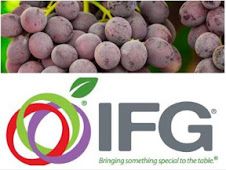In a decision of importance to trademark practitioners who labor in the varietal plant field, the Board held that "proposed marks that constitute the prominent portion of a varietal denomination are unregistrable under Trademark Act Sections 1, 2, and 45 because they are generic for the varietals they identify" and therefore "incapable of functioning as a trademark." And so, the Board refused to register the proposed mark IFG for "Fresh fruits and vegetables; live plants; live trees; live grape vines; live plant material, namely, live grape vine material, live plant material and live tree material." In re International Fruit Genetics, LLC, 2022 USPQ2d 1119 (TTAB 2022) [precedential] (Opinion by Judge Angela Lykos).

The CAFC in In re Pennington Seed Co., 466 F.3d 1053, 80 USPQ2d 1758, 1761-62 (Fed. Cir. 2006), upheld the USPTO's long-standing precedent and practice of treating varietal names as generic, affirming the Board's ruling that the term "Rebel," as a varietal name for a type of grass seed failed to function as a mark. The CAFC explained that an entity that is the source of a varietal may use a particular term as a trademark for its specific varietal, but it must be clear that there is also a generic name for the varietal. "This notion reflects the Board's earlier decisions that if the term is used as a designation of source (i.e., a trademark) and there is a different varietal designation, the term may be registrable."
The Board agreed with the applicant that IFG, by itself, is not
the entire varietal name for applicant's identified goods.
However, the USPTO's evidence established that the initialism
IFG is the first component of numerous varietal names for grapes,
grapevines, grapevine plants, sweet cherry trees and cherries,
goods that are encompassed within the scope of Applicant's
identified goods.
As to the first question, the Board followed Pennington
Seed in concluding that "[g]ranting an applicant a
trademark registration for the prominent portion of a varietal name
would be anticompetitive since it would be allowing one entity to
have exclusive trademark rights in a generic term." Moreover,
"[t]o hold otherwise would be a breach of U.S. obligations
under the UPOV convention."
As to the second question, the Board followed In re Delta & Pine Land Co., 26 USPQ2d 1157 (TTAB 1993) (upholding a refusal to register DELTAPINE, which was a portion of the varietal names Deltapine 50, Deltapine 20, Deltapine 105 and Deltapine 506 for cotton and soybean plants) in finding that IFG is the prominent portion of each of applicant's varietal names (for example, "IFG Cher-seven"). "Consumers are likely to focus on the initial letter string 'I-F-G' and pronounce it as such in calling for the goods."
As to the third question, the Board concluded that
applicant's ownership of a registration for IFG for partly
identical goods ("live plants, namely, table grape vines,
cherry trees") did not alter the result here. After filing the
underlying application for that prior registration, applicant
selected IFG as the initial term in subsequently filed applications
for plant patents with the USPTO, and for PVP protection with the
Plant Variety Protection Office of the Department of
Agriculture.
The Board brushed aside applicant's patently erroneous
assertion that because its prior registration is
"incontestable" [i.e., more than five years old -
ed.] it is immune from a genericness attack. Under Section
14(3), genericness claims are not time-barred and can be brought
"any time if the mark becomes the generic name for the
goods."
The Board showed no sympathy for the applicant: "By making a deliberate decision to select IFG as the prominent portion of the varietal names of the identified goods, Applicant self-abrogated its own trademark rights, exposing its prior trademark registration to potential cancellation in an inter partes proceeding."
Read comments and post your comment here.
The content of this article is intended to provide a general guide to the subject matter. Specialist advice should be sought about your specific circumstances.

